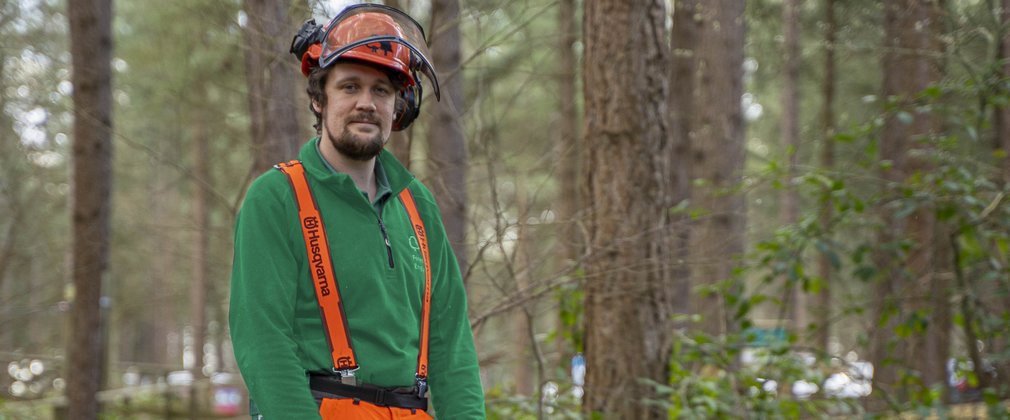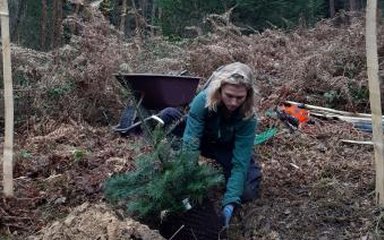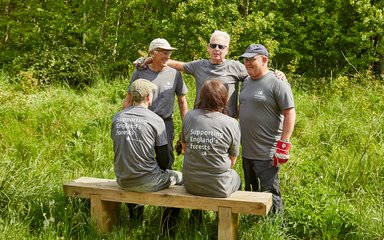
Forestry England cares for more land and more trees than any other organisation in England, shaping landscapes for people, nature and timber. Forest craftspeople work as part of the land management team who help to keep the forest healthy, safe and welcoming for the public.
They carry out a range of practical tasks which sometimes may include a specific speciality such as tractor operator or an element of public engagement.
What it takes
A forest craftsperson will spend most of their time working outside and need a good level of fitness. Their work entails following Health and Safety guidance and job risk assessments. They are managed by a works supervisor and will work with colleagues from across the organisation.
The types of tasks may include:
preparing an area of land before planting with trees, and managing newly planted trees.
supporting the wildlife ranger with conservation management, such as clearing invasive species and habitat restoration work.
working alongside the recreation team to keep forest visitors safe, especially whilst harvesting operations are taking place.
maintaining forest structures such as forest gates and fences, and installing interpretation and signage.
operating machinery, including mulchers, mowers, chainsaws and winches.
carrying out practical tasks such as high pruning, cutting back, strimming and tree felling.
undertaking tree safety work surveys, installing safety signage and safety fencing.
carrying out safety inspections, litter picking and dealing with fly-tipping.
assisting the works supervisor with stock taking, marking and tagging trees ready for harvesting.
reporting of incidents and near misses into an online accident reporting system.
Skills and qualifications
We recommend that you gain experience and certificates where you can. This may include volunteering to gain practical knowledge, completing a relevant college course or apprenticeship as well as achieving appropriate certificates such as chainsaw maintenance and cross cutting, first aid and the application of pesticides.
You can get into this job through:
a college course.
an apprenticeship.
Forestry England's shadow volunteer and trainee programmes.
gaining experience through volunteering.
College
It is recommended to take a course, possible at an agricultural college, to learn some of the skills needed in this job. Examples of course topics you could consider include:
forestry and arboriculture.
countryside and land management.
countryside and environment.
Apprenticeship
Apprenticeships are a great way to learn while you earn.
You could get into this job by doing a Forest Craftsperson Level 3 advanced apprenticeship.
With experience, you could move on to complete a Professional Forester Level 6 degree apprenticeship.
You'll usually need:
five GCSEs at grades 9 to 4 (A* to C), or equivalent, including English and Maths, for an advanced apprenticeship.
four or five GCSEs at grades 9 to 4 (A* to C) and A levels, or equivalent, for a degree apprenticeship.
Discover more about apprenticeships at Forestry England.
Salary
Starting from £26,000.
Typical hours
On average 37 per week.
Forestry England offers flexible working patterns where appropriate and lots of other great benefits to support a healthy work/life balance.
How you can grow with us
Your career could progress into other roles such as:
- forest works supervisor, forest manager and woodland officer.
- community and recreation rangers.
- specialist roles such as working in plant health and ecology.
Applying to work at Forestry England
You can find all our current vacancies online at Civil Service jobs.
Our frequently asked questions will help you in your application.




